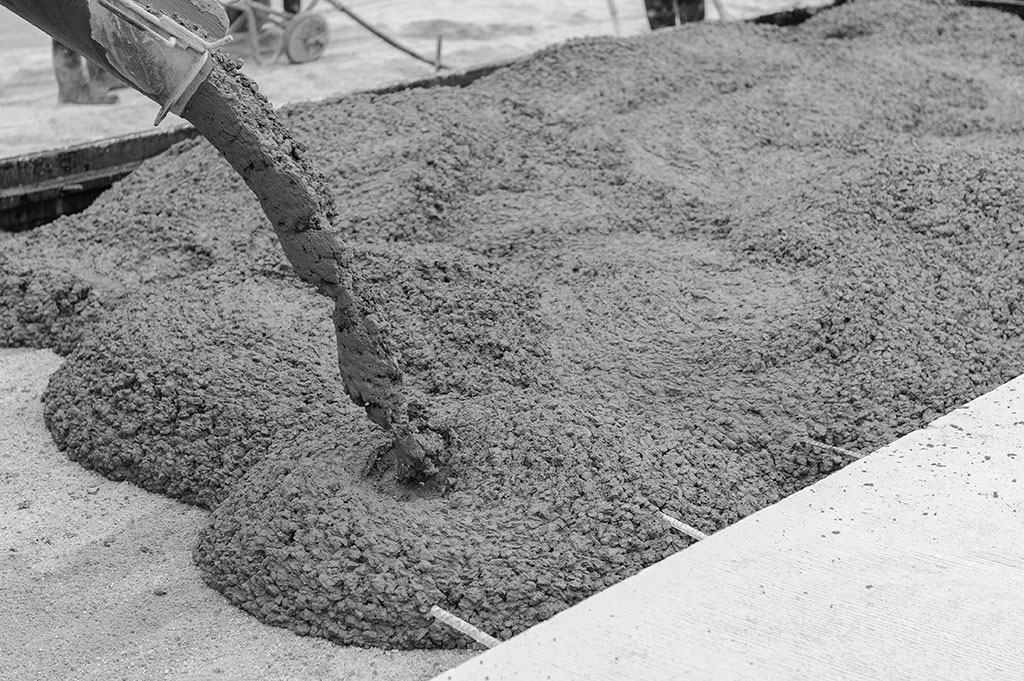Revealing the Eco-Friendly Advantages of Using Recycled Concrete in Sustainable Building Practices
In the realm of sustainable construction practices, the use of recycled concrete stands as a critical yet commonly underestimated resource. Beyond its traditional applications, recycled concrete offers a myriad of green advantages that extend far past the confines of conventional construction materials.
Environmental Advantages
Undoubtedly, one of one of the most significant advantages of using recycled concrete is its favorable effect on the setting. By integrating recycled concrete into building and construction practices, there is a considerable decrease in the need for brand-new raw products, bring about conservation of natural resources. This process helps in maintaining accumulations, water, and power that would have been utilized in creating brand-new concrete. Additionally, the usage of recycled concrete diminishes the quantity of waste being sent out to land fills, thus decreasing environmental air pollution and easing the pressure on garbage dump capacities.

In contrast, recycled concrete has a lower carbon impact as it decreases the need for new concrete production. In general, the environmental advantages of using recycled concrete are significant and play an essential duty in promoting environmentally friendly building and construction techniques.
Cost-Efficiency
Achieving cost-efficiency is a critical factor to consider when evaluating the use of recycled concrete in construction jobs. One of the vital advantages of using recycled concrete is its cost-effectiveness compared to standard concrete.
Additionally, making use of recycled concrete can cause savings in landfill prices by drawing away concrete waste from disposal sites. This not only lowers the ecological impact but additionally eliminates the expenses connected with waste removal. The longevity and efficiency of recycled concrete are equivalent to standard concrete, making certain that cost savings do not endanger the top quality of the building.
Sturdiness and Stamina
Thinking about the considerable cost-efficiency advantages of utilizing recycled concrete, it is vital to examine its toughness and stamina in construction applications. Recycled concrete offers comparable, if not remarkable, longevity and strength residential properties to traditional concrete. Through developments in handling strategies and quality assurance, recycled concrete can satisfy or surpass the performance requirements of conventional concrete. The procedure of reusing concrete includes squashing, sorting, and screening old concrete to create aggregates that can be made use of in new building jobs. These recycled aggregates can providing acceptable compressive strength, resilience, and lasting performance.

Waste Reduction
When it comes to making use of recycled concrete, waste decrease is a crucial benefit that contributes significantly to ecological preservation. By incorporating recycled concrete right into building and construction projects, this waste is repurposed and diverted from garbage dumps, lowering the total ecological influence of construction tasks.
Recycled concrete not only aids in minimizing the amount of waste that ends up in land fills yet also conserves all-natural resources by decreasing the demand for new aggregate products. This process of waste reduction advertises a circular economy within the building market, where materials are reused and recycled to create a more lasting market. Furthermore, using recycled concrete can lead to set you back savings for building and construction jobs, as it is frequently more budget friendly than sourcing and carrying brand-new products. In verdict, waste reduction with the usage check my reference of recycled concrete is an important part of sustainable construction practices that profits both the setting and the building sector overall.
Power Preservation
Power conservation is a vital element of lasting building practices, intending to minimize the general power usage connected with structure procedures and products production. When it involves using recycled concrete in building and construction, significant energy savings are accomplished compared to traditional concrete production. The process of producing recycled concrete entails recycling and crushing existing concrete materials, which takes in much less power than mining, processing, and transporting basic materials for new concrete production. Furthermore, making use of recycled concrete can aid reduce the demand for virgin aggregate, further minimizing the energy-intensive extraction and handling of natural resources.
Conclusion
In verdict, the usage of recycled concrete in sustainable building methods supplies various ecological advantages, cost-efficiency, durability, strength, waste decrease, and power conservation. By incorporating recycled concrete into construction projects, we can add to an extra lasting and eco friendly future. It is necessary for the building and construction sector to focus on the usage of recycled products to aid decrease the environmental influence of building and construction tasks.
One of the key benefits of making use of recycled concrete is its cost-effectiveness compared to conventional concrete.Furthermore, the usage of recycled concrete can lead to cost savings index in land fill costs by diverting concrete waste from disposal sites. The resilience and efficiency of recycled concrete are similar to standard concrete, ensuring that expense financial savings do not endanger the top quality of the additional info building and construction.
